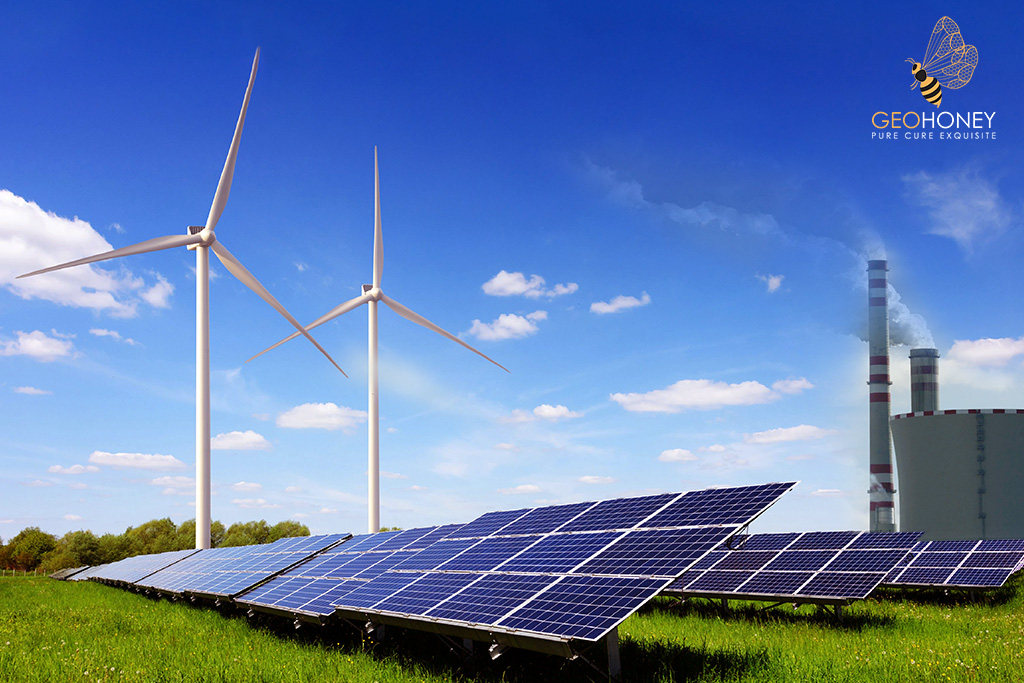- Tokyo: 22:09
- Singapore: 21:09
- Dubai: 17:09
- London: 13:09
- New York: 08:09
G7 Promises To Accelerate Efforts Towards Renewable Energy & Zero-Carbon

Japan's SAPPORO (AP) — After two days of discussions in the northern Japanese city of Sapporo, the energy and environment ministers of the Group of Seven wealthy nations pledged on Sunday to seek to speed up the transition to cleaner, renewable energy but did not set a deadline for retiring coal-fired power plants.
A 36-page communiqué was released by the authorities outlining their promises in advance of the G-7 summit in Hiroshima in May.
Japan's national plan, which emphasises so-called clean coal, hydrogen, and nuclear energy to help secure its energy security, has received support from other G-7 nations.
The communiqué states that the group is "reaffirming our commitment to accelerating the clean energy transition to net-zero greenhouse gas (GHG) emissions by 2050 at the latest" in light of the present global energy crises and economic disruptions.
"We call on and will work with other countries to end new unabated coal-fired power generation projects globally as soon as possible to accelerate the clean energy transition in a just manner," the declaration said.
A "predominantly decarbonized power sector" must be achieved by 2035, the leaders reaffirmed, and carbon emissions must be cut drastically. They also emphasised the significance of securing steady supplies of important minerals that adhere to high social and environmental standards because they are used in many high-tech products.
After the talks, Akihiro Nishimura, Japan's environment minister, said, "I believe that we were able to demonstrate to the international community that our commitment to climate change and environmental issues is unwavering, even in the context of the situation in Ukraine."
The requirement that by 2035, nations must rely "predominantly" on clean energy leaves flexibility for the continued use of fossil fuel-fired power. However, the ministers decided to give "unabated" coal power generation—plants that don't have devices to catch emissions and stop them from escaping into the atmosphere—priority when it comes to taking action.
John Kerry, the United States' Special Presidential Envoy on Climate, described the meetings as "really constructive."
"I think the unity for the goal that was expressed of phasing out unabated fossil fuels is a very important statement," Kerry stated in an interview with The Associated Press.
The call to action comes at a time when China and other emerging nations are increasing their requests for more assistance in phasing out fossil fuels and stabilising energy costs and supplies amid disruptions from Russia's conflict on Ukraine.
The G-7 countries are responsible for 25% of the world's carbon emissions and 40% of the world's economic activity. Both their actions and their assistance for less developed countries—which frequently experience the greatest effects of climate change while having the fewest resources to mitigate such effects—are crucial.
While emerging markets and developing countries currently account for more than two-thirds of global carbon emissions, emissions in advanced economies are declining despite historically being greater – the United States alone accounts for approximately a quarter of historic global emissions.
The communiqué emphasised the need to reduce carbon emissions from 2019 levels by about 43% by 2030 and 60% by 2035. Additionally, it reaffirmed the G-7's pledge to stop funding fossil fuels by 2025.
In a statement, the COP28 president-elect, who was also present at the Sapporo climate talks, urged the G-7 countries to expand financial support for developing countries' transitions to renewable energy.
Sultan Al Jaber of the United Arab Emirates said, "We must negotiate a more equitable deal for the Global South." "Not enough is getting to the places and people that need it most."
He asserted that rich nations must fulfil a $100 billion commitment they made at the 2009 COP15 conference. The following discussions will take place in Dubai in late November.
Following their Friday meeting in Beijing, Chinese President Xi Jinping and Brazilian President Luiz Inacio Lula da Silva released a joint statement in which they expressed worry that the money "continues to fall short of the commitment of $100 billion per year."
India's environment minister, Bhupender Yadav, asked the G-7 nations to speed up their carbon cuts so that emerging nations can expand their economies. According to him, that is "the best defence against the impacts of climate change, environmental degradation, and pollution," he wrote in a tweet.
Climate supporters claimed that the Sapporo text contained a large degree of subtlety to account for variations in the G-7 countries' energy policies.
Alden Meyer, a senior associate at E3G, a climate change think tank, commented on the communique in a Twitter space session shortly after it was released. "They put out bold language on the urgency of addressing the climate crisis, but the real test is what they are saying to the rest of the world about their commitments to scale up ambitions," Meyer said.
The agreements, however, "fall short of the clarion call to action that was needed," Meyer said. While other G-7 nations blocked Japan from extending loopholes to allow larger use of fossil fuels, Meyer added.
While the G-7 energy and environment ministers were closing up their sessions in Sapporo, the G-7 foreign ministers were debating other common issues like regional security and the conflict in Ukraine in the alpine city of Karuizawa.
The transition to renewable energy has been made more difficult by the conflict, which Kerry called "insane and tragic," as it has disrupted oil and gas trade and driven prices sharply higher, but the reduction of carbon emissions can and must continue.
According to Kerry, "I think energy security is being exaggerated in some cases," citing Germany's advancements in adopting renewable energy and even phasing out its nuclear power facilities.
Source: apnews.com




So which is which? If the parties oppose each other's plan and strategy, how can this climate change be solved?